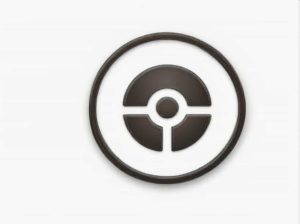The National Defence Academy (NDA) Exam is one of the most prestigious entrance exams in India conducted by the Union Public Service Commission (UPSC). It serves as the gateway for candidates aspiring to join the Indian Army Navy and Air Force.
One of the most common questions among aspirants is whether the NDA exam is objective or subjective. Understanding the exam pattern is crucial for effective preparation and success. In this topic we will provide a detailed breakdown of the NDA exam pattern including the nature of questions marking scheme and tips for preparation.
1. NDA Exam Pattern: Objective or Subjective?
The NDA written exam is completely objective. It consists of multiple-choice questions (MCQs) where candidates must select the correct answer from the given options. Unlike some other exams the NDA does not include any subjective or descriptive questions.
Key Features of the NDA Written Exam:
- Mode of Exam: Offline (Pen and Paper)
- Type of Questions: Objective (Multiple-Choice Questions)
- Subjects Covered: Mathematics and General Ability Test (GAT)
- Marking Scheme: Negative marking for incorrect answers
The objective nature of the exam makes it essential for candidates to have a strong grasp of concepts and efficient problem-solving skills.
2. Detailed Breakdown of the NDA Written Exam
The NDA written exam consists of two papers:
(a) Mathematics Paper
- Total Marks: 300
- Number of Questions: 120
- Time Duration: 2.5 hours
- Marking Scheme:
- +2.5 marks for each correct answer
- -0.83 marks deducted for each wrong answer
The Mathematics section is purely objective and requires a solid understanding of algebra trigonometry calculus probability and coordinate geometry.
(b) General Ability Test (GAT)
- Total Marks: 600
- Number of Questions: 150
- Time Duration: 2.5 hours
- Marking Scheme:
- +4 marks for each correct answer
- -1.33 marks deducted for each wrong answer
The GAT section is further divided into:
- English (200 Marks) – Focuses on grammar vocabulary and comprehension.
- General Knowledge (400 Marks) – Includes topics from Physics Chemistry History Geography Current Affairs and Defence-related knowledge.
Both sections consist of multiple-choice questions (MCQs) making the entire written exam objective.
3. Is There Any Subjective Part in the NDA Exam?
No the NDA written exam is 100% objective. However candidates must also clear the SSB Interview which involves subjective aspects such as psychological tests group discussions and personal interviews.
While the written test is MCQ-based the SSB Interview assesses personality leadership qualities and communication skills through various subjective exercises.
4. NDA Selection Process: Objective vs. Subjective Components
The NDA selection process consists of the following stages:
(a) Written Exam (Objective)
- Comprises MCQs in Mathematics and GAT
- Conducted by UPSC
- Eliminatory stage – only candidates who qualify are called for the SSB Interview
(b) SSB Interview (Subjective & Personality-Based)
- Includes Psychological Tests Group Tasks and Personal Interview
- Evaluates leadership problem-solving skills and decision-making abilities
- Conducted over 5 days at designated SSB centers
(c) Medical Examination (Physical & Mental Fitness Assessment)
- Ensures candidates meet prescribed physical and medical standards
While the written exam is entirely objective the SSB Interview is highly subjective assessing a candidate’s overall suitability for a career in the armed forces.
5. Importance of Objective Questions in NDA Preparation
Since the NDA written exam is objective candidates should focus on:
- Conceptual Clarity: Strong understanding of mathematical concepts and general knowledge topics.
- Time Management: Efficiently solving MCQs within the given time limit.
- Accuracy: Avoiding guesswork to reduce negative marking.
- Regular Practice: Solving previous years’ question papers and mock tests.
6. Strategies to Crack the Objective NDA Exam
(a) Master the Basics
- Focus on fundamental concepts in Mathematics Physics and English.
- Strengthen problem-solving skills through practice.
(b) Solve Previous Year Papers
- Understand the pattern of questions.
- Identify important topics frequently asked in the exam.
(c) Manage Time Effectively
- Divide time between Mathematics and GAT sections.
- Avoid spending too much time on difficult questions.
(d) Avoid Guesswork
- Since there is negative marking only attempt questions you are confident about.
(e) Stay Updated with Current Affairs
- Read newspapers and defense-related news to score well in the GAT section.
7. FAQs About NDA Exam Pattern
Q1: Is the NDA exam objective or subjective?
The NDA written exam is completely objective consisting of multiple-choice questions (MCQs) in Mathematics and General Ability Test (GAT).
Q2: Are there any descriptive questions in NDA?
No the NDA exam does not include any descriptive or subjective questions in the written test.
Q3: Is the SSB Interview subjective?
Yes the SSB Interview involves subjective evaluation through psychological tests group discussions and personal interviews.
Q4: Is there negative marking in the NDA exam?
Yes negative marking is applicable:
- Mathematics: -0.83 for each incorrect answer
- GAT: -1.33 for each incorrect answer
Q5: Can I clear NDA just by solving objective questions?
Yes but you must also perform well in the SSB Interview which tests leadership and decision-making skills subjectively.
The NDA written exam is entirely objective with multiple-choice questions in Mathematics and General Ability Test (GAT). However candidates must also clear the SSB Interview which involves subjective evaluation.
To excel in the NDA exam aspirants must focus on conceptual understanding time management and accuracy while solving MCQs. A well-planned study approach combined with regular practice and current affairs knowledge will help candidates achieve success in this prestigious defense examination.



